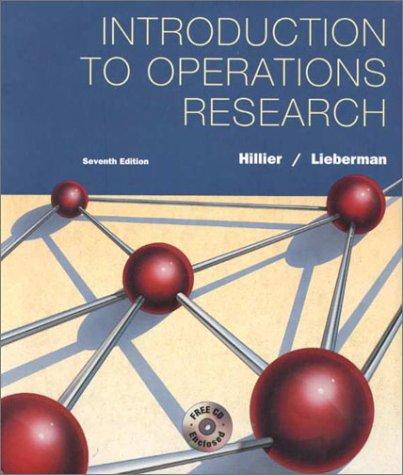Consider a single-server queueing system with a finite queue that can hold a maximum of 2 customers
Question:
Consider a single-server queueing system with a finite queue that can hold a maximum of 2 customers excluding any being served. The server can provide batch service to 2 customers simultaneously, where the service time has an exponential distribution with a mean of 1 unit of time regardless of the number being served.
Whenever the queue is not full, customers arrive individually according to a Poisson process at a mean rate of 1 per unit of time.
(a) Assume that the server must serve 2 customers simultaneously. Thus, if the server is idle when only 1 customer is in the system, the server must wait for another arrival before beginning service. Formulate the queueing model as a continuous time Markov chain by defining the states and then constructing the rate diagram. Give the balance equations, but do not solve further.
(b) Now assume that the batch size for a service is 2 only if 2 customers are in the queue when the server finishes the preceding service. Thus, if the server is idle when only 1 customer is in the system, the server must serve this single customer, and any subsequent arrivals must wait in the queue until service is completed for this customer. Formulate the resulting queueing model as a continuous time Markov chain by defining the states and then constructing the rate diagram. Give the balance equations, but do not solve further.
Step by Step Answer:

Introduction To Operations Research
ISBN: 9780072321692
7th Edition
Authors: Frederick S. Hillier, Gerald J. Lieberman





